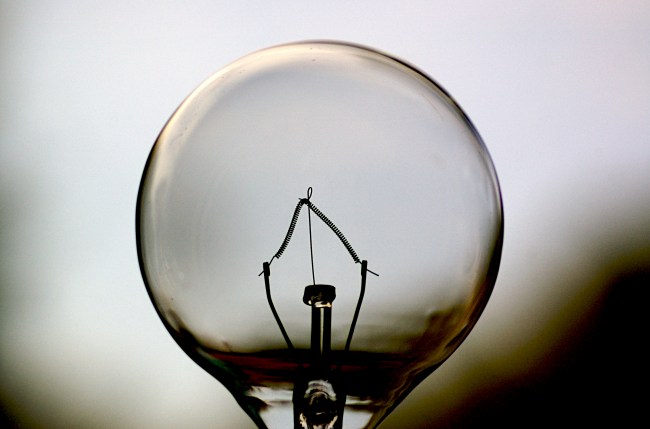After years of living in a charming thatched cottage made of lumpy damp cob, I appreciate the joys of the smooth walls and year-round dry warmth of my current flat. I’ve rented the flat for nearly five years now and at the end of the summer when the heating clicks back on I feel the glow of knowing that I won’t have to sit through a winter at the laptop suffering with stiff, cold fingers, icy feet and a chest infection.
Wherever I have lived I’ve appreciated the convenient delights of hot water for washing up, daily showers and the simple pleasure of being able to boil a kettle for a pot of tea. When it falls dark in the evenings being able to turn on a lamp is reassuring. These small daily conveniences confirm that all is well with the world.
For many people in the western world heat, water and light are considered essential for a civilised existence. Take away just one of those elements and many people would feel deprived. Perhaps I have become soft, but there is no way I could live in cold, damp ancient places again. The rat thudding up the bedroom stairs and out through the charming little cottage window under the eaves ended romantic dwelling for me. Given the choice I suppose I could cope with candle-light as long as I had warmth, but it would be irritating and tiring reading and writing by dim light. It makes me wonder how the writers and thinkers of the past managed to get so much work done.
The desire to read a book in a warm well-lit room might seem innocent enough, but the romantic 18th century thinker Rousseau felt that a comfortable, intellectual existence prevented people from living rich lives. In the words of Bertrand Russell, romantics ‘did not aim at peace and quiet, but at vigorous and passionate individual life.’ Rousseau believed that civilisation enslaved people. Real life was lived with intense feeling, preferably outdoors as much as possible. Think Wordsworth swooning against a tree and you get the picture.
The romantics rebelled against convention. Individual freedom was worth fighting for and worth all the hassle of going against the status quo. Perhaps this leads to solipsism. Bertrand Russell certainly thinks so and condemns romantic values as destructive. ‘Hence the type of man encouraged by romanticism, especially of the Byronic variety, is violent and anti-social, an anarchic rebel or a conquering tyrant.’
Rousseau fitted the stereotype. True to the romantic spirit he sold his watch (being Swiss that was obviously the first thing he thought of) and spent time wandering through France homeless, pick-pocketing and befriending wealthy women when he became short of cash. He had a long-term affair with a chambermaid with whom he fathered five illegitimate children, and all of them ended up in orphanages. He became a social celebrity and was granted favours by Kings. His writing was banned. He inspired a revolution and he fell out with the most benign of philosophers David Hume.
I like to imagine the scatty Swiss and the sober Scot settling down with a good malt whisky or two to discuss the idea of taste and what constitutes human identity, but this philosophical friendship ended badly when Rousseau accused Hume of going along with a plot to kill him. A broken-hearted Hume mourning the loss of his crazy companion remained generous to the end. ‘He has only felt during the whole course of his life,’ Hume said of Rousseau. ‘He is like a man who was stripped not only of his clothes, but of his skin, and turned out in this situation to combat with the rude and boisterous elements.’ Rousseau returned to France where it is believed he ended his own life.
It’s easy to see why 18th century society with its emphasis on land and property rights seemed so depressing to someone who had no home of his own, but had Rousseau lived in the 21st century he might have recognised the benefits that modern civilisation has brought: not only electric light, but high speed trains and air travel. Civilisation has enabled us to build hospitals, waste systems and recycling plants. It has created reservoirs and universities, nature reserves and clean beaches. It has given us digital photography and film and free music. It has brought us vaccinations, the world wide web, safety lamps, flushing toilets, postage stamps, pencils, and rubber bands, all of which the Sun newspaper reminded everyone (or at least the 22 million who received the free copy this week) were invented by the English, brand leaders of civilisation itself.
Civilisation is no longer the chain that shackles us, but rather the bridge that takes us to where we want to go. Seen in this light civilisation frees us.
